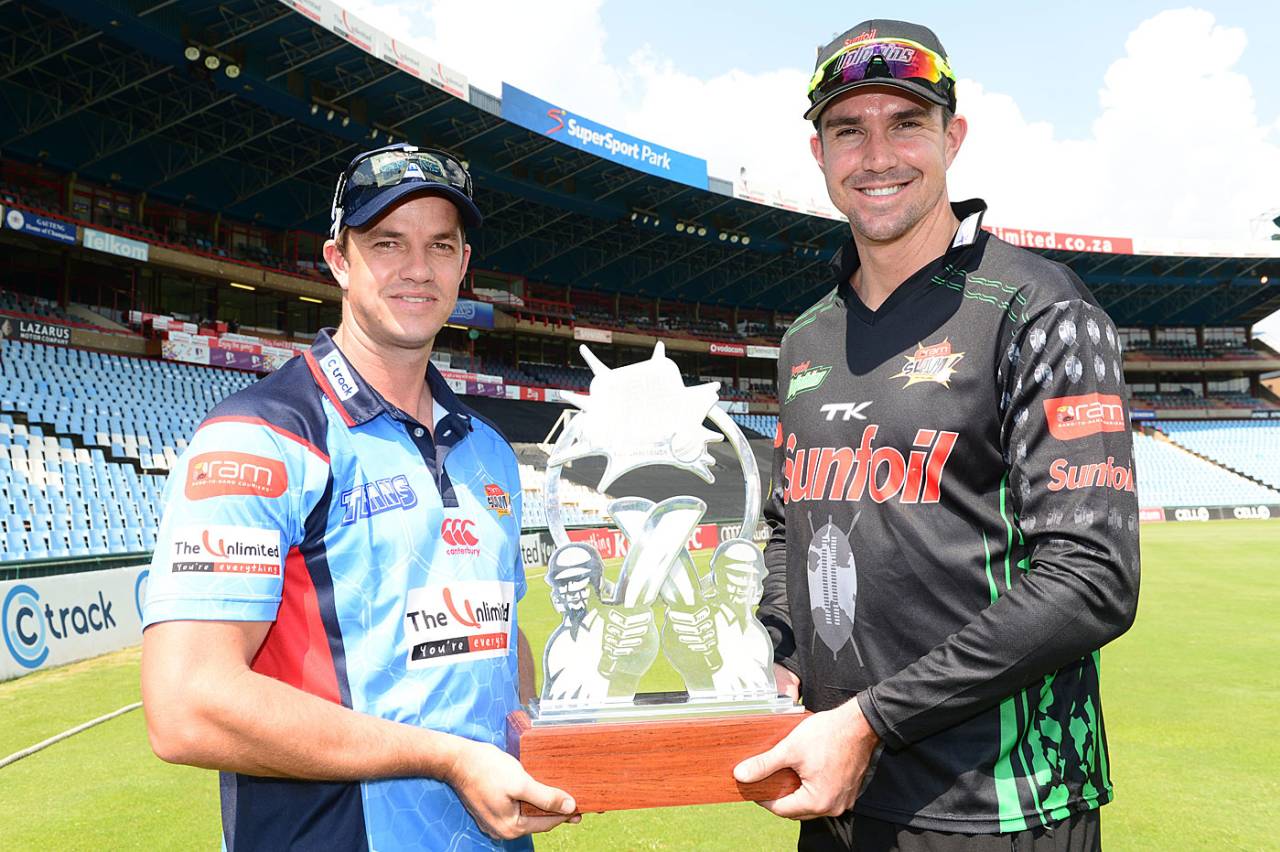South Africa internationals unavailable for first half of Ram Slam T20
Some of South Africa's international players will be unavailable for at least the first half of the domestic 20-over competition, which will impact CSA's ability to grow the profile of the tournament
Firdose Moonda
Jun 7, 2016, 3:17 PM

The Ram Slam T20 Challenge has struggled to gain the same glamour as competitions like the IPL and the Big Bash League • Gallo Images
Some of South Africa's international players will be unavailable for at least the first half of the domestic 20-over competition, which will impact CSA's ability to grow the profile of the tournament. The fixtures of the Ram Slam T20 Challenge were announced on Tuesday and the tournament is scheduled to run from November 12 to December 16, which overlaps with the Test team's tour to Australia that ends on November 28.
This means international players, including Hashim Amla, AB de Villiers, Dale Steyn and Kagiso Rabada, will only feature peripherally in the tournament, despite CSA's desire to have their big names available for as much of the competition as possible. Such was South Africa's desire to try and promote their shortest format like India, Australia, Pakistan, Bangladesh, West Indies and England have done, that they moved a Test in Sri Lanka's tour of South Africa from mid-December to mid-January to free up the holiday period for Ram Slam T20. Although they have achieved that, the first 18 matches of the 32-game tournament will take place with the Test team playing fixtures in Hobart and Adelaide.
South Africa's 20-over competition has struggled to gain the same glamour as some of its counterparts for two reasons. Chiefly, it has not attracted enough international stars, not even from South Africa, and this will only change in the second half of the event this year. The tournament has also been unable to contract too many big names as the declining Rand is an unattractive currency, and the timing of the tournament is awkward for many players. In some years, it clashed with the Big Bash League. In a few seasons, it has clashed with Test fixtures in other countries.
The competition has retained its sponsor for now. Courier company RAM were reviewing their backing of the tournament after last season's competition was marred by match-fixing allegations which saw Gulam Bodi banned for 20 years for attempting to manipulate matches. CSA insists Bodi did not succeed. The investigation into the allegations has not reached its conclusion with the South African board still expected to name other players it intends to sanction.
The rest of South Africa's domestic season will take place as normal, beginning with the four-day competition that is split into two rounds of five matches each. The one-day cup will be played in a single block in February and March, when the national side will be in New Zealand, which also makes them unavailable for those games.
The second-tier semi-professional tournament still includes Namibia and will be played as three-day and one-day fixtures but the 20-over tournament has fallen away in favour of the season-opening Africa Cup. Now in its second edition, the Africa Cup is played over four weekends with the table-topping team from each pool advancing to a finals weekend. All teams play only three matches and it also includes teams from Zimbabwe, Namibia and Kenya.
Firdose Moonda is ESPNcricinfo's South Africa correspondent